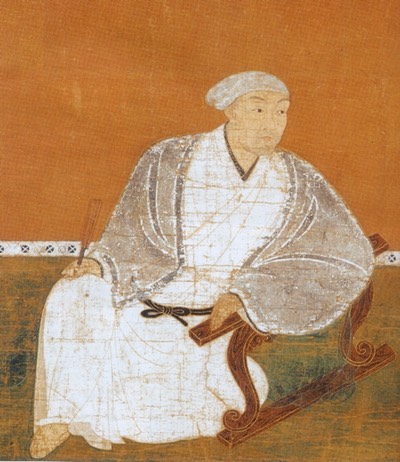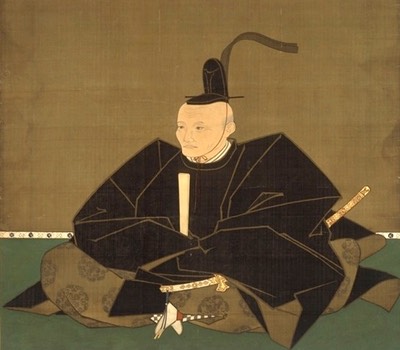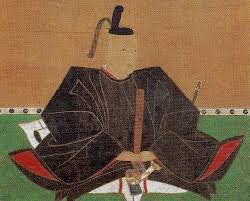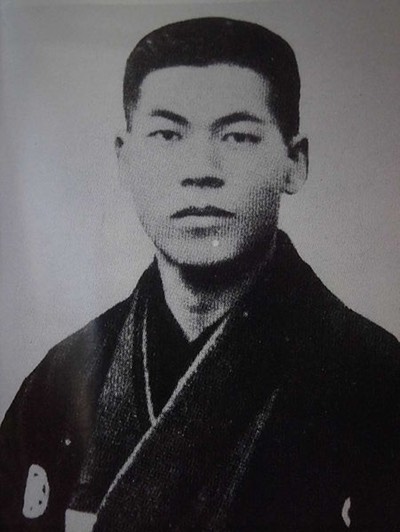Perhaps one of the most stubborn (and at the same time most difficult to rectify) ideas is that, in 1600, Musashi should have fought among the western forces in the great battle of unification at Sekigahara. This is all the more curious since not one among the many sources that are available claims that Musashi (who was only sixteen years of age at the time) should have done so. Indeed, the Bushū denraiki, which does dwell at length on Musashi’s whereabouts at this time, unequivocally states that, while the battle of Sekigahara was raging at the heart of the main island of Honshu, the young Musashi was far away on the southern island of Kyushu, taking part in the siege of Tomiku castle on behalf of his father’s lord, Kuroda Yoshitaka (1546–1604):
出陣して、冨来城乘の節、黒田兵庫殿先手よりに町ほど先がけて、三の丸のならしに乘あがりたる所を、矢狭間より、鎗を以て辨之助が股を突かすり者あり。辨之助甚忿て、立並びたる者どもに向ひ、「此狭間より鎗にて吾を突、鎗として見すべし」と云て、股を矢狭間にさし當て待つ。案の如く又鎗にて股を貫く。突通されながら鵜の首をひしと取て、鎗を奪取んとす。敵も取られじと引合ふ。辨之助、股の骨にあて、鵜の首よりに尺余をいて鎗を折。朋友共に、「是を見よ。鎗をとりたり」とて、少も疵を被りたる事を不言。
Having ridden into battle and laid siege of Tomiku castle, Bennosuke [Musashi] climbed the castle's ramparts some two hundred yard ahead of Kuroda Toshitaka's vanguard. There a yari, thrust through one of the castle's arrow loopholes struck him in the waist. Infuriated, Bennosuke called out to the soldiers lined up below, “They are stabbing me from this arrow loophole here. I will show you how to get rid of it,” at which point he put the upper calf of his leg up against the loophole and waited.
Though it's author, Tanji Hōkin, claims that Musashi joined his father in Nakatsu and entered the service of Kuroda Yoshitaka’s brother, Toshitaka, is contested by some, there is little doubt that Musashi’s father, Muni, did indeed live in Nakatsu at this time, as his name is mentioned in the local records of the Kuroda clan (see Musashi's Father). Going by what Hōkin is saying, it seems that Muni had left the castle town of Takamori and joined his lord, Kuroda Yoshitaka in Nakatsu, the seat of the Kuroda headquarters.
Unless Musashi had completely fallen out with his father (which is contradicted by the Bushū denraiki, as well as the Numata kaki) it is unlikely that, at the tender age of sixteen, Musashi should have ended up fighting among the western forces. Nor is there any evidence to suggest under whom he might have done so. If Musashi had indeed been fighting among the ranks of the western allies, why should he furthermore have relied with such consistency and apparent faith on the hospitality of Ogasawara Tadazane (Akashi), Nagaoka Okinaga (Kokura), and Hosokawa Tadatoshi (Kumamoto), all staunch supporters of the house of Tokugawa.
Musashi’s eastern loyalties are also supported by the Kōkō zatsuroku, as well as the Osaka o-jin no otomo and the Osaka o-jin o-ninzu tsukeoboe (see below), which all clearly state that during the siege of Osaka castle Musashi served among the troops of Mizuno Katsunari (1564–1651), yet another chieftain who had chosen Ieyasu’s side (see below). It is, after all, very unlikely that Musashi would have fought on the side of the western forces during the Battle of Sekigahara and have switched to fight alongside the eastern forces in the defense of Osaka castle.
Had Musashi indeed fought among the western forces, why should he furthermore have adopted Mikinosuke, the third son of another Ieyasu ally, Nakagawa Shimanosuke, who served Katsunari as musha bugyō, his Magistrate of Warriors? Mikinosuke’s background, by the way, is not provided by the Kōkō zatsuroku, but by an ancestral record drawn up in 1696 and submitted to the administrators of the Okuyama fiefdom in the province of Bizen by a certain Miyamoto Kohei, head of a contingent of ashigaru of the Ikeda clan and a nephew of Miyamoto Mikinosuke.
The reason why the former view has become so entrenched among Musashi’s modern day fans can partly be ascribed to the Japanese novelist Yoshikawa Eiji (1892–1962), who in his epic novel Musashi, chose to have Musashi fight—and taste the bitter but cathartic experience of defeat—among Ishida Mitsunari’s allies. One reason for Eiji to have done so, might well have been to heighten dramatical tension. To have Musashi fight on the losing side, after all, provided the consummate novelist with far more scope for character development that him being among the victors.
It were, of course, the events in his personal life—his troubled relationship with his father, the ritual suicide of his first adoptive son, and the death of his illegitimate daughter—that really determined the personal development of this battle hardened warrior, and in ways far more profound than any defeat in battle could ever be.
Any queries of remarks? Launch or join a discussion at our new FORUM



